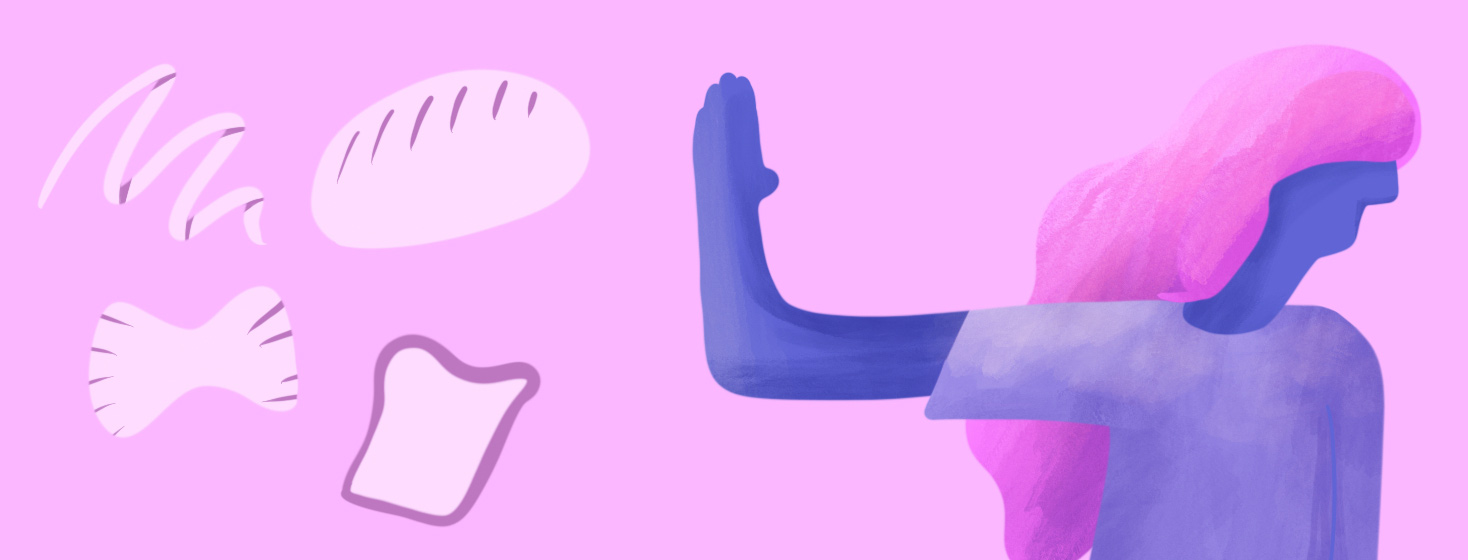Are Gluten-Free Foods Unhealthy?
Removing gluten from my diet was one of the best things I ever did to improve my overall wellbeing. For years, I had sensed that foods containing gluten weren’t doing anything for me. First, they would cause my skin to break out. Then, I dealt with constant bloating. Finally, I just had to accept that gluten was inflammatory for my gut and that I’d be better off without it.
Replacing foods with gluten-free options
When I stopped eating gluten, some of my daily symptoms started disappearing. I was no longer constantly bloated. My acne got a lot better. I still had IBS flares, but aside from those, I was feeling healthier on a daily basis.
To adjust for my new diet, I simply replaced all my go-to foods with gluten-free options. Gluten-free bread, pasta, brownies, granola, crackers… you name it. And that is how I ate for a while. It was insanely expensive, but other than that, my diet seemed fine.
Reading ingredients lists
During the past year, I’ve started getting more and more into nutrition. Not that I know a lot about it now. But before, I just wasn’t interested in it at all.
Over the course of a couple of months, I developed the habit of reading ingredients lists. And I mean, actually reading them, not just checking if they contained a potential trigger food. That’s when I noticed that the gluten-free products I was buying had one thing in common: a very, very long list of ingredients that I couldn’t pronounce.
Are gluten-free foods unhealthy?
From preservatives to food coloring to strange words that take up half the packaging, it was all there. Much worse than the original foods containing gluten.
Now, I just want to mention that I live in Europe, that I was shopping at a normal supermarket and also that I was mostly buying the cheapest gluten-free versions I could find. They were expensive enough for me as it was. If you buy better quality gluten-free products, you might not have this issue at all.
Still, for me, this didn’t seem right. I was trying to eat a cleaner diet with less processed foods, and yet there I was, buying things that were doing the exact opposite.
A naturally gluten-free diet
As I saw it, I had two options. Either I would have to shop for even more pricey, organic versions of these foods, or I would have to stop eating them altogether. I opted for the second one.
Slowly, I started replacing my gluten-free products with naturally gluten-free options. Rice and potatoes instead of pasta. Dark chocolate and dates or figs instead of brownies and cookies. The only thing I wasn’t able to replace was bread. My partner had been trying to make our own gluten-free bread without any nasty ingredients for a while and finally found a recipe that works, so I’m very happy about that.
I haven’t noticed any difference in my gut health since making these changes, but I guess that that’s normal. None of the nasty ingredients were triggers for me. I just don’t think that they’re very healthy, so I didn’t like the idea of consuming them every day.
If you’re gluten-free, have you ever noticed any bad ingredients in your gluten-free products? Or is this specific to the brands and foods I was buying?

Join the conversation